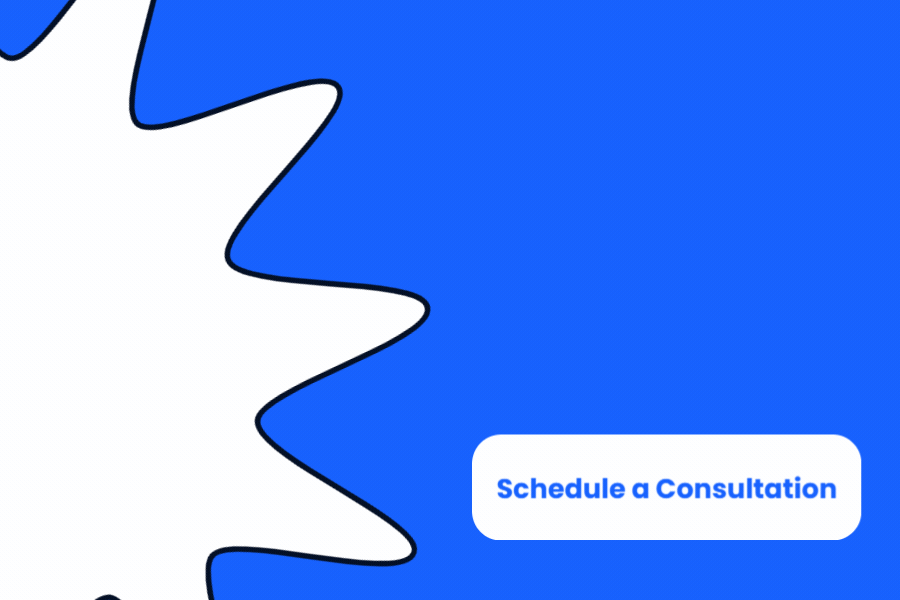

Vancouver in Canada is a liquid city, a tomorrow city, with breathtaking views, scenic routes, and a relaxed atmosphere. Everyone in the city is highly active, and it is full of energy. Thanks to mild weather, swimming sites, and nature, Vancouver is a relaxing environment to study and live in. All this makes student life in Vancouver rich and filled with incredible experiences. If you are wondering about living in Vancouver in Canada, this article gives you all information you need.
In this guide:
- How is the Student Life in Vancouver City?
- What are the Educational Standards in the Universities of Vancouver?
- What about Work Opportunities in Vancouver?
- How much does Student Life in Vancouver Cost?
- How is Transportation in Vancouver?
- Conclusion
How is the Student Life in Vancouver City?
Vancouver is a sought-after destination for potential international students in Canada due to its outstanding quality of life and warmer winters than other major cities like Montreal and Toronto.
Although Vancouver is not the coldest city, the ski resorts are excellent! Rocky areas border the city, and fantastic mountains for snow activities are easily accessible.
The Cypress is one of the most well-known mountains, and it is there that you can see one of the Olympic and Paralympic Winter Games installations from 2010.
Vancouver is quite varied in ethical and linguistic groupings like other large Canadian cities. Over the past tens of years, the number of immigrants has continued to climb.
Almost half of the city’s residents do not speak English as their first language, and 30 percent have Chinese ancestors. In Vancouver, Italian, Greek, Scandinavian, and Ukrainian heritages are also typical.
Every neighborhood in Vancouver is distinct. Restaurants and beaches are plentiful in West End, making it an ideal location for people seeking a delectable lunch and a breathtaking sea view.
Chinatown is a cultural neighborhood that blends Asian customs with local culture. It is home to North America’s third-largest Chinese community.
Gastown is the place to enjoy shopping. It has a vintage feel and offers a wide range of merchandise and fantastic restaurants.
The overwhelming number of possibilities will make picking where to reside difficultly. However, do not be concerned! You will quickly find your sweet spot because the city is not large, and there are many international students in the same scenario.
The city is ideal for people who enjoy walking and discovering the charms of each area and street.
As a student, you will never be bored in your spare time and undoubtedly broaden your cultural horizons.
if you want to know more about Canada read this article:
Why is Canada the Best Country for Study Abroad
What are the Educational Standards in Universities of Vancouver?
Many international students enroll in Canadian universities to open doors for a brighter future and elevate their academic credentials.
Vancouver is a special one with over 10,000 international students representing more than 80 countries in all Canadian cities.
Canada’s third-largest city offers a diverse selection of programs. High academic requirements and quality controls in this country ensure high-quality education.
Vancouver is a central tech hub in Canada, so it is not surprising that it is known for high-quality educational institutions in engineering, technology, and digital media.
This city in British Columbia offers a wide range of well-regarded courses in communication, business, languages, the arts, medicine, law, pharmaceutical sciences, and other fields.
The universities in this city provide various specializations for Bachelor’s, Master’s, and Ph.D. levels. International students can find their favorite courses both in English and French languages.
What about Work Opportunities in Vancouver?
Vancouver is the land of opportunity for graduates looking to start a career in the tech sector.
Software development, biotechnology, aerospace, and video game creation are a few growing fields in this great city.
Big companies are based in Vancouver, so animation studios, television production, and film industries offer excellent chances.
International students can begin working part-time employment both on and off-campus in Canada.
It is an opportunity to gain experience that will make a difference in your curriculum as a young professional, not merely earn some additional money and assist with the expenses of living in Vancouver city.
How much does Student Life in Vancouver Cost?
According to the 2022 edition of the Demographia International Housing Affordability report, Vancouver is the least affordable market in Canada.
International students in Vancouver have several options for housing. The more expensive options include:
- On-campus hostels; about CAD 650 to 690 each month,
- Homestays; about CAD 650 to 750 each month,
- Sharing an apartment with a roommate; CAD 300 to 1200 each month.
The third option has some additional charges too. However, if you know where to look for apartment sharing, you can get an excellent bargain and discover extremely reasonable lodging.
Students pay about CAD 50 in the summer and CAD 130 in the winter for heating and hot water. BC Hydro provides this service if you live in the Metro Vancouver area.
Wi-Fi charges vary depending on the speed and company. Students can choose between smaller local firms, such as Novus, or larger companies like TELUS for a faster ride. Prices range from CAD 65 to 130.
Before making your final decision, we suggest looking into the student programs offered by several phone companies.
When it comes to food expenses in Vancouver, students spend less money. Local supermarket expenditures range from CAD 150 to 180 each month.
Depending on how much you prefer to cook at home, dining out in a low-priced restaurant would cost almost CAD 15.
There are many options for gym lovers in Vancouver, and gym membership varies from CAD 20 to 90 each month.

Cell Phone Plans for Student Life in Vancouver
You need two pieces of identification to obtain a cell phone plan in Vancouver. First of all, is the passport. The second piece of identification could be a government-issued ID card, your Study Permit, a Social Insurance card, or a legal credit card in your name.
Ensure you have your lodging letter (or rental agreement) as proof of address. Phone providers will typically not activate your cell phone plan without proof of address.
A monthly plan without a contract is a fantastic alternative for short-term students. Many phone companies offer unique student plans that are frequently less expensive and better.
What are the challenges of studying in Canada?
How is Transportation in Vancouver?
In Vancouver, monthly public transportation passes are more expensive than in other Canadian cities like Montreal.
Depending on how far they live, international students may need to obtain a monthly compass card pass or pay-as-you-go public transportation.
A monthly pass for short distance costs around CAD 130; however, the longer the distance, the more a monthly pass would cost.
The followings are the most common public transportation options in this city.

Bus for Living in Vancouver
Bus system is very popular in Vancouver. The bus routes go across the city, and you can even visit some of the attractions too.
SkyTrain for Student Life in Vancouver
The high-speed train makes it easier to get from the metropolis to the suburbs. The following are some of the lines:
- Expo Line: Connects Downtown Vancouver to the suburbs of New Westminster, Burnaby, and Surrey in the southeast.
- The Canada Line connects downtown Vancouver with the International Airport, Vancouver, and the Richmond suburbs.
- Millennium Line: Passes through Burnaby, Port Moody, and Port Coquitlam east from Vancouver.
SeaBus for Living in Vancouver
A unique transportation model connects Downtown Vancouver residents to the Lonsdale Quay Market in North Vancouver.
There are two terminals for SeaBus:
- Waterfront Station in Downtown Vancouver, which connects with buses, SkyTrain, and West Coast Express;
- Lonsdale Quay in North Vancouver, which connects with an extensive network of North Shore buses.
Bike for Student Life in Vancouver
Everyone tries to ride a bike in addition to taking public transportation. Cycling is encouraged and well-equipped throughout the city.
You may hire bikes through Mobi app in Vancouver. If you intend to study in this city, it may be worthwhile to own your own.

Car for Living in Vancouver
Car insurance is one of the more considerable monthly expenses contributing to the higher cost of living in Vancouver city. If you are a beginner driver without a Canadian license, your car insurance will be CAD 260.
Car owners in Vancouver pay for hourly parking when using public spaces. However, a parking spot at a residential parking lot costs around CAD 130 every month.
Although you have the option of walking or cycling like the majority of the residents, public transportation is also available.
Conclusion
Vancouver is one of the few cities where you can spend a morning on the beach and enjoy snow sports. It is one of the reasons Vancouver is frequently ranked among the best cities to live in. Public transportation makes commuting to and from your studies safe and straightforward, with regular and well-located bus routes and SkyTrains running from dawn to dusk. This article offered a lot of information regarding student life in Vancouver city. However, if you have any more questions about living in Vancouver and the expenses, please ask in the comments section.
Sources:
https://www.grad.ubc.ca/campus-community/life-vancouver
https://ciccc.ca/cornerstone-blog/studying-in-vancouver/
https://www.immigrationnews.ca/2017/11/09/8-international-student-in-vancouver/
https://www.idp.com/pakistan/study-in-canada/vancouver/
https://www.columbiacollege.ca/new-students/living-in-vancouver/
https://gecliving.com/blog/whats-the-cost-of-living-in-vancouver-for-students/
https://lonsdalequay.ca/seabus
http://www.demographia.com/dhi.pdf


How useful was this post?
Click on a star to rate it!
Average rating 0 / 5. Vote count: 0
No votes so far! Be the first to rate this post.








No comment yet, add your voice below!